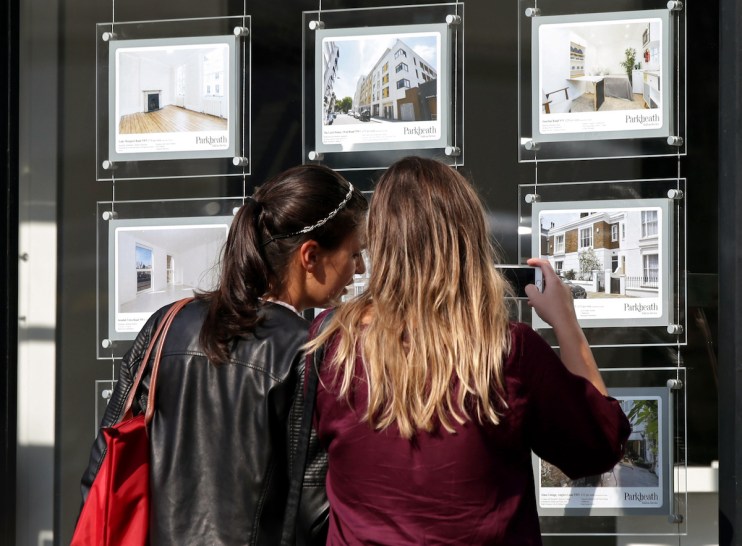‘Fizz has left the market’: House prices fell by 0.6 per cent in January as average property value plummets

The average UK house price fell by 0.6 per cent in January, according to Nationwide Building Society.
Annual house price growth slowed to 1.1 per cent , from 2.8 per cent in December, and the typical property value is now 3.2 per cent lower than its August peak, the lender said.
The average UK house price in January 2023 was £258,297.
The annual growth rate of 1.1 per cent is the lowest since June 2020, when house prices fell by an annual 0.1 per cent, a dip which was attributed to the coronavirus pandemic.
House prices stalled in September last year, with 0.0 per cent change and this was followed by monthly falls of 1.0 per cent in October, 1.2 per cent in November and 0.3 per cent in December.
The mortgage rates being offered by lenders jumped following the mini-budget and borrowing costs have also been increasing as the Bank of England base rate has risen.
Robert Gardner, Nationwide’s chief economist, said: “There are some encouraging signs that mortgage rates are normalising, but it is too early to tell whether activity in the housing market has started to recover.
“The fall in house purchase approvals in December reported by the Bank of England largely reflects the sharp decline in mortgage applications following the mini-budget.
“It will be hard for the market to regain much momentum in the near term as economic headwinds are set to remain strong, with real earnings likely to fall further and the labour market widely projected to weaken as the economy shrinks.”
He added: “Should recent reductions in mortgage rates continue, this should help improve the affordability position for potential buyers, albeit modestly, as will solid rates of income growth, especially if combined with weak or negative house price growth.
“Nevertheless, the overall affordability situation looks set to remain challenging in the near term.”
Jeremy Leaf, a north London estate agent, said: “The fizz has certainly left the market, leaving behind more serious needs-driven as opposed to discretionary buyers, coming to terms with more stable mortgage rates and greater balance between supply and demand.
“Looking forward, the outlook for house prices remains fairly steady with no expectation of any dramatic change.”
Matthew Thompson, head of sales at Chestertons, says: “2023 unfolded with a busy property market which is being boosted by house hunters who paused their search due to last year’s economic uncertainty but no longer want to delay their search.
“In January, our branches noticed a 25% increase in viewings compared to January last year. Whilst buyer demand is strong, the number of market appraisals remains comparably low as some sellers are still observing how the market might be developing in the first quarter of this year. Sellers who are currently listing their property are therefore in a stronger position to attract serious buyers and offers.”
Gabriella Dickens, a senior UK economist at Pantheon Macroeconomics, said: “Nationwide’s data show that house prices are continuing to buckle under the pressure of elevated mortgage rates, squeezed real incomes and weak consumers’ confidence.”
Phil Gamblin, founder of Cardiff-based mortgage broker Oak Financial, said: “We’ve seen a large number of inquiries from home-buyers and re-mortgagers alike, suggesting that the turmoil felt at the end of 2022 is dying down and confidence is returning to the market.”
Press Association – Vicky Shaw
